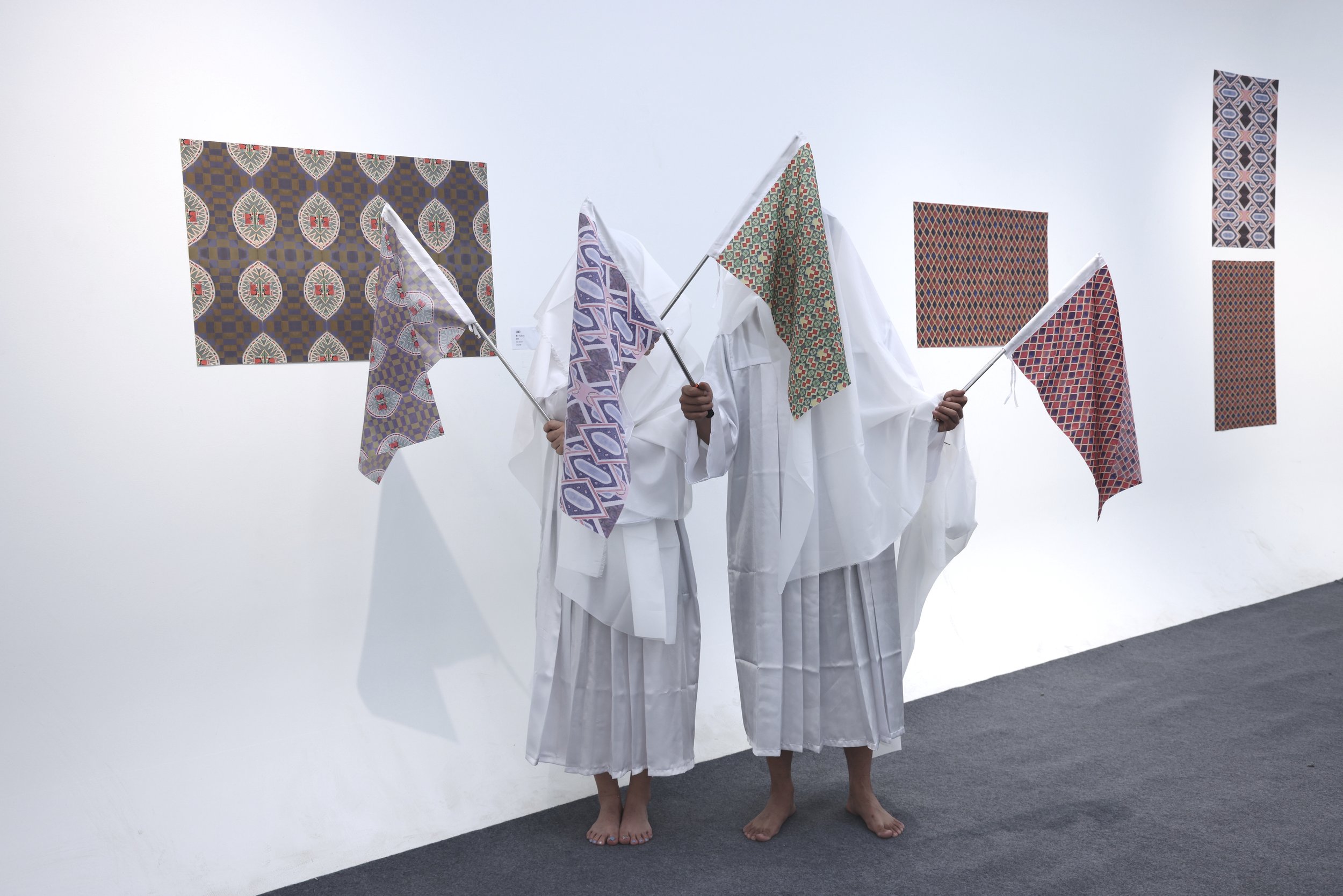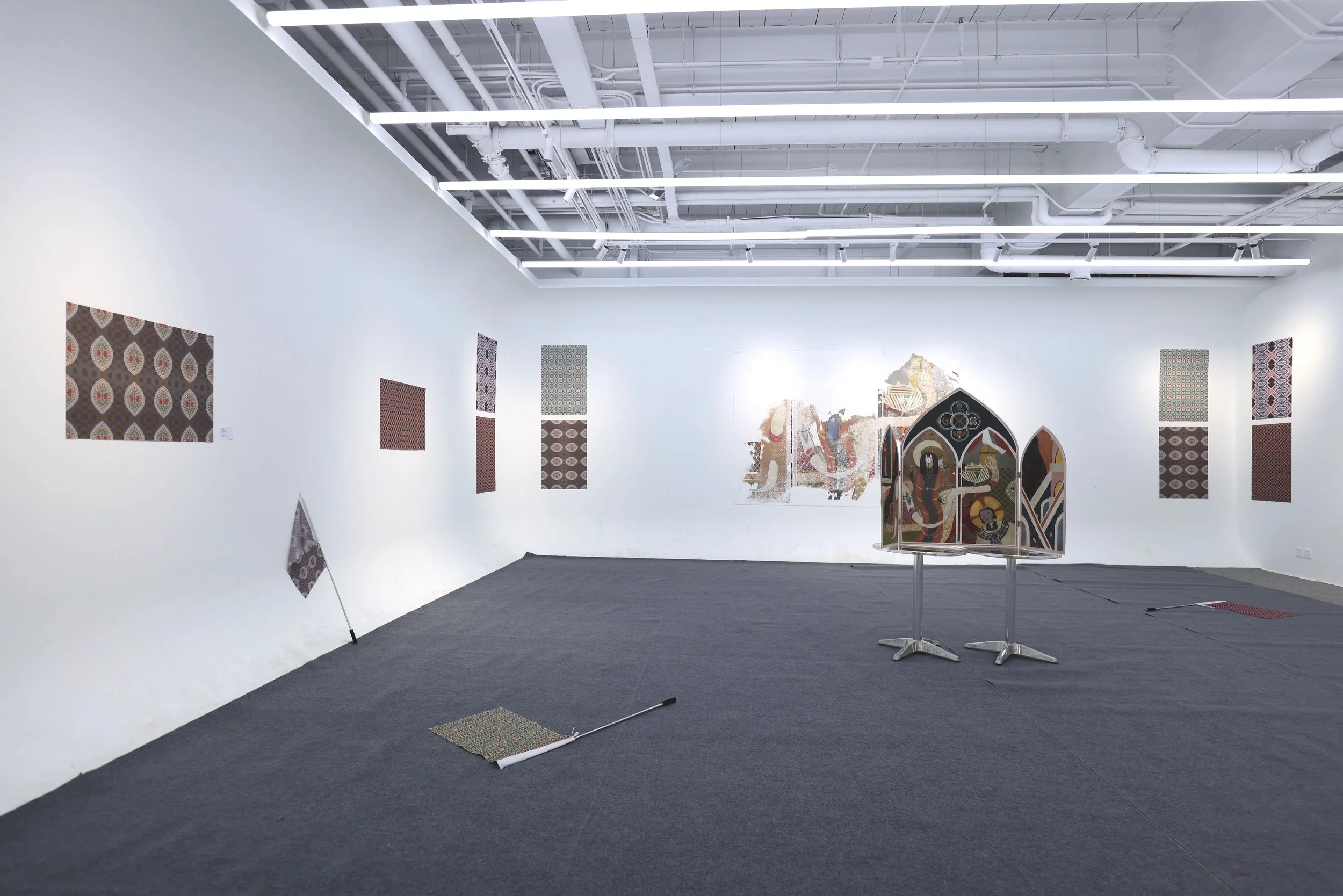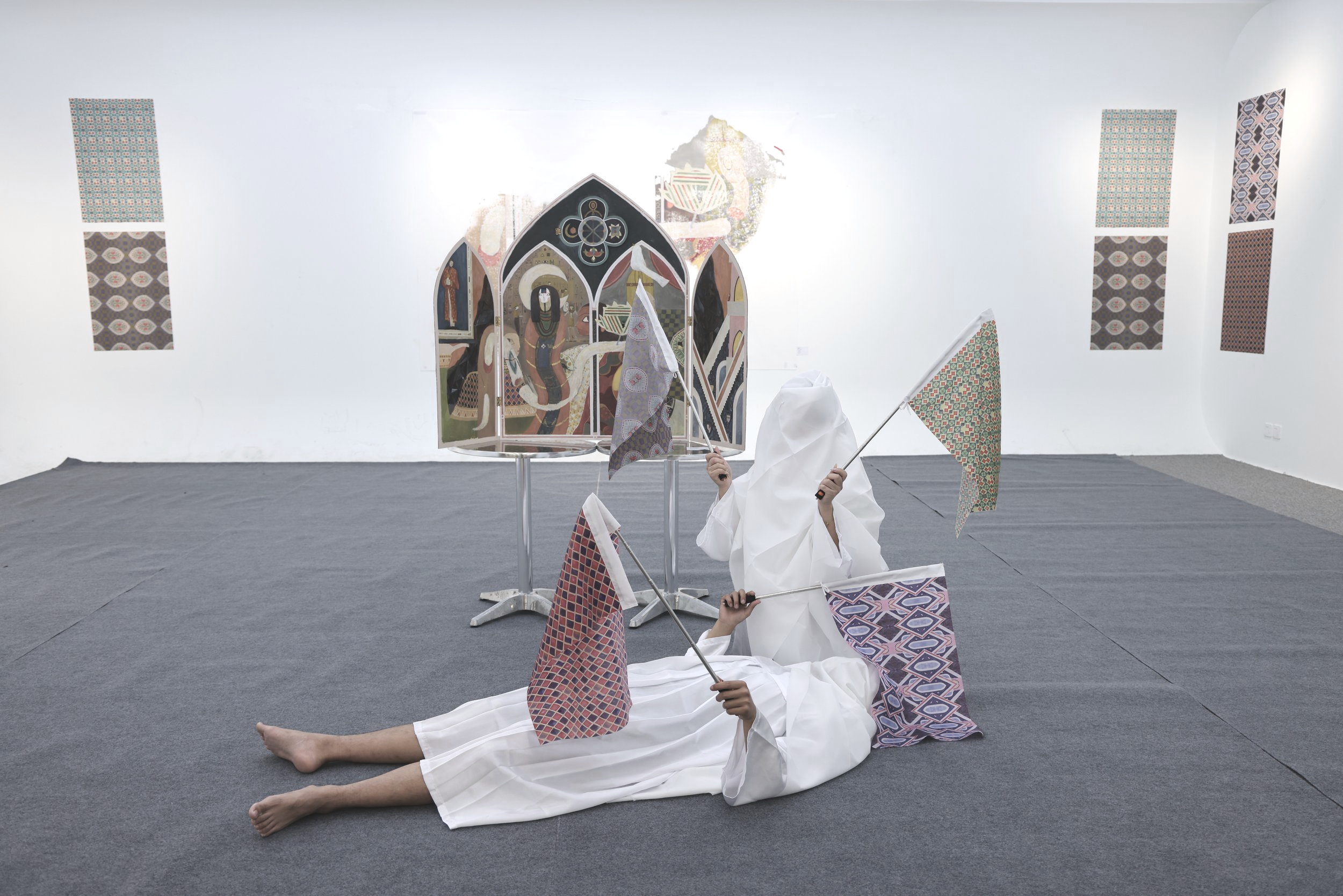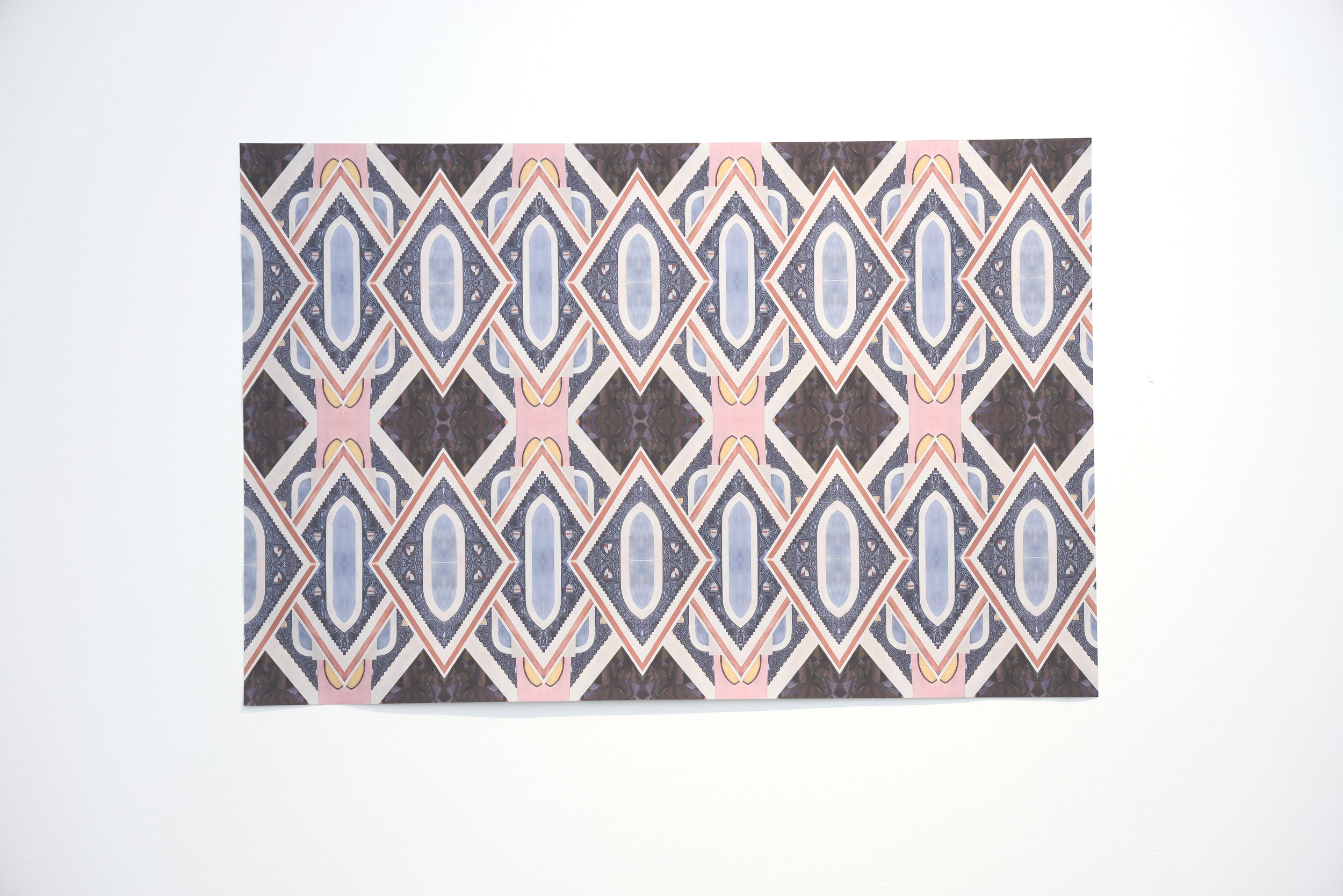
Like That, Like That
ARTIST: JingJing Xu
SOLO EXHIBITION 12/10/2024-19/10/2024
Like That, Like That
12/10/2024-19/10/2024
Like that, like that 2024
Photo by Luan gallery
Like that, like that
In the poem That by British poet Rebecca Watts, space is written as a continuously contracting predicament:
“It would be better not to be that fly — the fly that sees in stereo what happens that day... that wall is too close to other walls / producing that effect of entrapment / one feels in a box… like that, like that, like that…”
A fly beats futilely within this enclosed loop, its existence creating a compulsive rhythm—a never-ending “that-ness.” The poem offers no escape, only constriction and repetition; the repeated phrase “like that, like that” intensifies the sense of claustrophobia and mental oppression. Thought itself is rendered as a ticking mechanism, both inevitable and inescapable. In this exhibition, JINGJING XU continues and transforms the metaphor of this predicament.
This condition resonates with the myth of Sisyphus in ancient Greece, condemned to an endless cycle: the boulder rolls down, and he must push it up again. Though the labor is futile, he persists, seeking meaning within the meaningless. The absurd cycle mirrors reality: in our daily repetitions, are we likewise pushing our own “boulders”?
In JINGJING Xu’s video work House of Unending, this predicament is reimagined in a contemporary context. The film follows a girl trapped in an ancient house, which functions as both architectural and psychological space, symbolizing blocked consciousness. Unlike Watts’ poem, where the situation remains unresolved, here spatial oppression becomes a narrative catalyst: the girl encounters two future versions of herself and achieves escape through mutual redemption.
Under the Veil situates this cyclical predicament in the context of East Asian women: the weight of tradition and family, the yearning for art and freedom. The layers of societal and cultural veils act as walls of enclosure, the boulders and houses women must confront. Through the act of creation, the artist rekindles desire and the authentic self, opening a fissure of freedom within seemingly unbreakable repetition.
Something Beautiful Dies extends this concern to ecofeminist dimensions, linking the predicament to the loss of nature and spirit. In an artificially constructed space, the caged peacock symbolizes repressed natural and spiritual vitality. The film explores the tension between the false and the real, memory and absence, reflecting our persistent quest for beauty, belonging, and survival amid environmental destruction and ecological void. Ecofeminist thought suggests that individual liberation and environmental restoration are inseparable: the fragmentation of female bodies, emotions, and ecological systems mirrors each other, indicating that the space for renewed perception, cognition, and practice may serve as a starting point for liberation.
Together, these works depict predicaments and repetition: enclosed spaces, futile cycles, veils, and absences. Yet they also point toward possibilities of resistance and creation—finding fissures within repetition, reconstructing self and environment under oppression. Like the repeated “like that, like that” in Watts’ poem, each recurrence manifests not only the predicament but also a latent rhythm of creation and redemption.
This trajectory ultimately raises a shared question: can meaning emerge within constraint? Watts offers an “unsolvable” answer; Sisyphus persists in futility. JINGJING Xu’s works—House of Unending, Under the Veil, and Something Beautiful Dies—open new possibilities: through dialogue and acknowledgment with the future self, inner desire, and estranged nature, individual liberation, self-reconstruction, and interdependent ecological consciousness can emerge—a non-dominating dialogue rooted in relational practice, interdependence, and mutual recognition.








